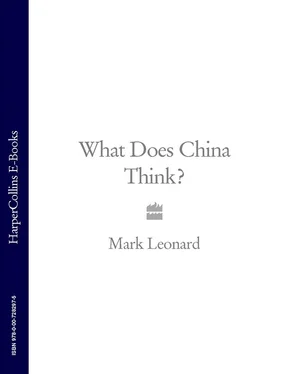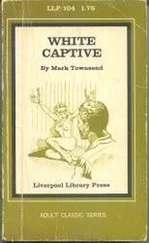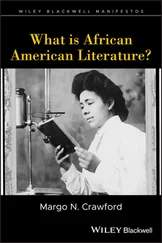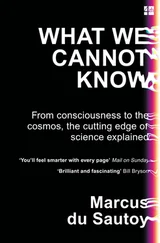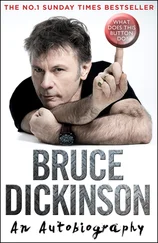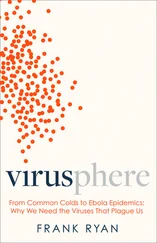Paradoxically, the power of the Chinese intellectual is amplified by China’s repressive political system where there are no opposition parties, no independent trade unions, no public disagreements between politicians, and a media that exists to underpin social harmony rather than promote political accountability. Intellectual debate, in this world, can become a surrogate for politics – if only because it is more personal, aggressive and emotive than anything that formal politics can muster. Intellectuals can articulate the concerns of broader social forces – workers, farmers, entrepreneurs – and push for change in their name. The Chinese like to argue about whether it is the intellectuals that influence decision-makers, or whether groups of decision-makers use pet intellectuals as informal mouthpieces to advance their own views. Either way, the debates between thinkers have become part of the political process, and are used to put ideas in play and expand the options available to Chinese decision-makers. Although many scholars complain that Chinese intellectuals have lost their traditional role as the social conscience of the nation – and been co-opted by the government or drawn into arid specializations – the clashes between different factions, such as the ‘New Left’ and ‘New Right’, do capture real social divisions on the ground.
Thinkers like Wang Hui and Zhang Weiying, Yu Keping and Pan Wei, Zheng Bijian and Yan Xuetong are still practically unheard of outside of China. But we will soon find our world changed by their thinking. Each has won the ear of the government with plans for reform that will change the nature of China’s economics, politics and foreign policy. They are engaged in an old-fashioned battle between Left and Right – about the size of the state, the shape of political reform and the nature of power. However, from their heated arguments a new philosophy is emerging, one that will have important implications for the world.
Of course, big decisions will always be taken by big leaders: China may not have embraced the market without Deng Xiaoping; Thatcherism would not have happened without Thatcher; the dissolution of the Soviet Union would not have happened without Gorbachev; and the Iraq War may not have been launched without George Bush. And yet it is impossible to understand the broad sweep of historical change without studying the intellectual movements that crystallize around certain ideas, on which the leaders can draw. Thatcher did not invent monetarism herself but drew on ideas which had been bubbling away for many years. George Bush was influenced by the ideas of Neo-Conservative intellectuals. Deng Xiaoping did not suddenly decide to open up China’s market; he was influenced by perspectives developed by Chinese intellectuals who had been in contact with the West. And today there are new ideas bubbling up within China that could form the core of a new Chinese philosophy, the idea of a ‘Walled World’.
CHAPTER ONE
In the 1980s, we were all reformists. We criticized old-style Maoist goals and practices. We looked at our circumstances through the ideas of the West. What we got was naïve and abstract because we didn’t really know what would happen to China once the market took off. We didn’t know that the market would create rich and poor: we thought it would benefit everyone. And for a few years it did.
Gan Yang
It was the Cuban cigars that first caught my eye. Half a dozen boxes of Cohiba, Romeo y Julieta and Montecristo piled high on Zhang Weiying’s desk in a haphazard monument to the economic opportunities of today’s China. These almost Freudian status symbols – worth several times a Chinese peasant’s annual income – are like pocket-sized pyramids, toiled over by workers for the rich to flaunt. Like the 300 skyscrapers of Shanghai or Beijing’s new Olympic Stadium they testify to the nature of an economy where labour has become a commodity, and money is spent almost as quickly as it is earned.
But for Zhang Weiying they are also pocket-sized fragments of freedom; products of a parallel universe – a republic of the West – that has been built alongside the Communist state in China; one whose dynamism he hopes will gradually eclipse and replace the last vestiges of Maoism. Like other economic liberals – or members of the ‘New Right’ as their opponents call them – he thinks that the planned economy is the foundation of political despotism; that China’s freedom will not come until the public sector is dismantled and sold off, and the state has shrivelled into a residual body designed primarily to protect property rights. Only then, according to the ‘New Right’, will a propertied class – a new civil society – be able to lay the foundations for democratic politics. The cigars, therefore, do not just show that getting rich is glorious, as symbols of private wealth they are milestones on the road to freedom.
Behind Zhang Weiying’s desk a glass-fronted display case glistened with the trophies and baubles of a distinguished career: books he has written and edited, pictures of him with Nobel laureates and statesmen, degrees from leading universities, and an award for ‘The Man of the Year in Chinese Economy’ from Chinese Central Television (CCTV) in 2002. They all reinforce the point that Professor Zhang Weiying has made it; that he is one of the most famous economists in China. But life today is getting tougher for economists like Zhang Weiying. After thirty years of ruling the roost with imported ideas from the West, they can feel China turning against them. Opinion polls show that they are the least popular group in China – on a par with traffic wardens and used-car salesmen in the UK. Public anger is growing over the costs of reform, with protests by laid-off workers coming together with concern over illegal demolitions, corruption and unpaid wages and pensions. As a result, the ideas of the market are being challenged by a ‘New Left’ which advocates a gentler form of capitalism. A battle of ideas is raging which pits the state against the market; coasts against inland provinces; towns against the countryside; the rich against the poor.
The dictatorship of the economists
Success is all about timing, and Zhang Weiying’s was perfect. He graduated with a degree in economics in 1982 – just as Deng Xiaoping’s opening and reform process was gathering momentum. It is hard for Westerners, used to life in a fissiparous open society, to understand a purposeful state like Deng’s China. Zhang Weiying frequently uses the word ‘missionary’ to describe the determination with which China pursued economic growth. In a similar way, Franz Kafka, the pre-eminent chronicler of life in the closed society, conjures up the singleness of purpose of the Chinese authorities in a different period in his essay on the Great Wall of China: ‘Fifty years before the building was begun, throughout the whole area of China that was to be walled around, architecture, and masonry in particular, had been declared the most important branch of knowledge, all others being recognized only in so far as they had some connection with it.’ When Zhang Weiying graduated in 1982, there was a new wall to build: China’s market economy. The Communist Party had declared that economic growth was ‘the central task’, and suddenly everyone wanted to be an economist. ‘Economics,’ as Wang Hui puts it, ‘acquired the force of an ethics.’ As the economy grew, so did the influence and wealth of the economists. They populated government taskforces, wrote plans for privatization and filled the boards of the newly privatized companies (131 of 274 independent directors in today’s listed enterprises are academic economists). They became the new high priests of China whose arguments increasingly trumped those of Maoist refuseniks (who were derisively known as fanshipai or ‘whateverists’ because they supported whatever policy decisions Chairman Mao made).
Читать дальше
